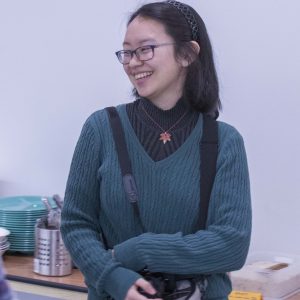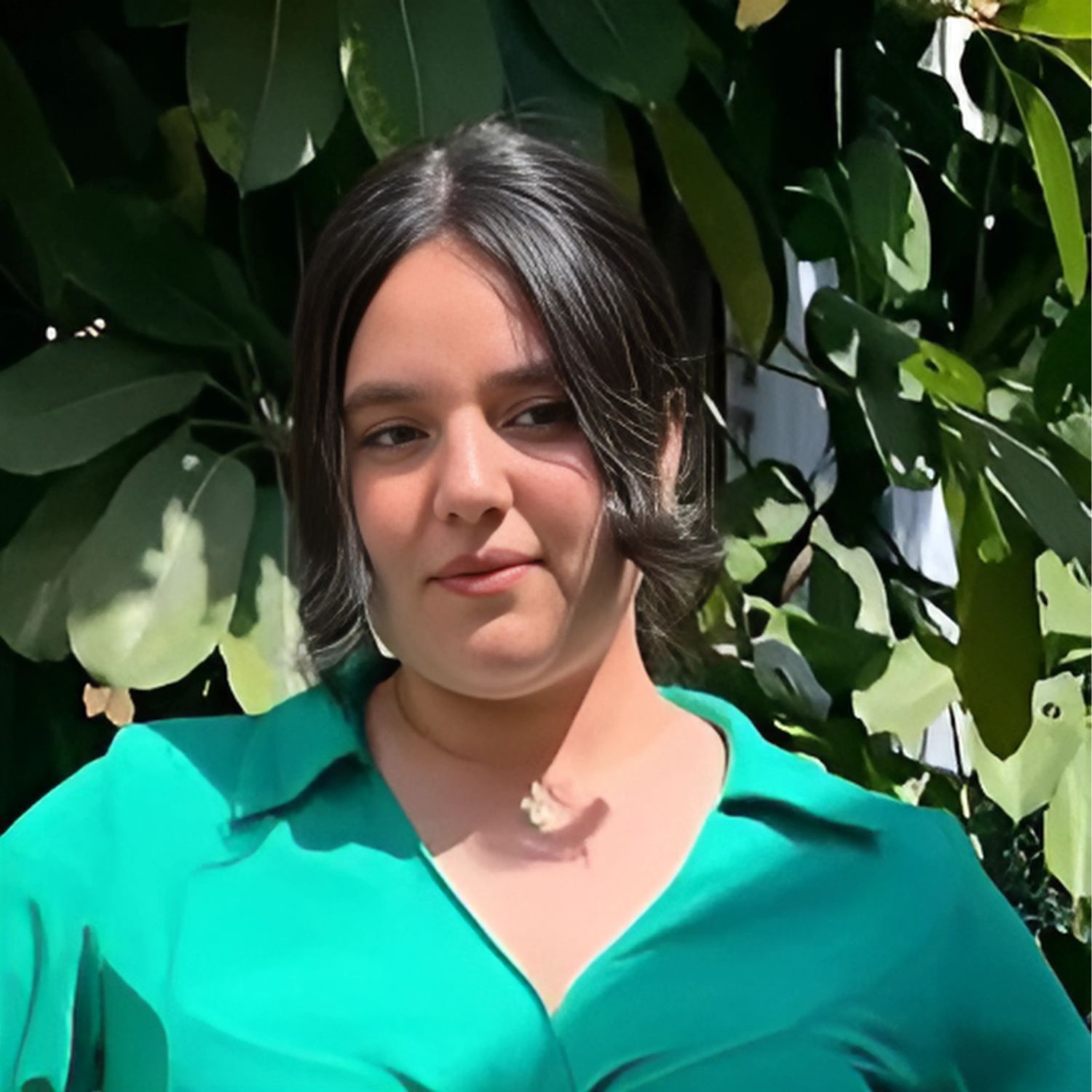
Hometown:
Plantation, Florida.
Education:
BA in English, University of Florida.
What were you doing before DRBU?
I had freshly graduated from my undergraduate studies at the University of Florida and after traveling for a few days in Europe, I started work at a family friend’s law firm in Miami. I wasn’t planning on jumping into a Master’s program at the time, but after taking a break to go to Buddha Root Farm, a retreat in Oregon hosted by people involved in the DRBU community, I saw that there was a way I could be around nurturing people while doing what I loved: talking about texts and working on my own self-care and growth.
Influential Class You’ve Taken:
I really appreciated Translating the Dharma, the lab portion specifically. Every week we would individually work on a section of long text, either doing the primary translation, reviewing, or editing. Because English is more of my strong suit, I would review the translations, check the technical terms, fix the flow of the sentences, and would spend over an hour just combing through the Classical Chinese text meticulously. In class we would review and edit our work with all the instructors and students as a group, and the discussions and decisions that took place brought so much joy. It taught me how to be open-minded and flexible, as well as humble. The hands-on aspect was my favorite part, and the content of the text sticks a lot better in my memory because I went through this process. I still go back and think about those translations now.
Influential Book You’ve Read:
I’m going to cheat a little with this question and answer that an influential book I’ve read is one that has not been published yet (as of July 2021): Venerable Master Hsuan Hua’s commentary to the “Ten Dedications” of the Avatamsaka Sutra. This was the text I was working on reviewing with my professor in the Translation Workshop class, and whichever section I was working on taught me timely teachings and something I could always take into my day and consider.
How has the Translation Certificate program changed you?
It has definitely made me deeply appreciate the world of translation more than I did before. I see that translation is everywhere in the world, part of the way we understand each other. I realize that translation is why I am able to access and get so much from the texts that I have always returned to. I am endlessly thankful for the painstaking work translators go through. I’d also like to think that I understand the significance of the role of spiritual practice more since it was a mandatory part of the Hermeneutics of Self class in the translation program. It is a great source of calming, humbling, returning, and quiet. Throughout this tough year, I was relieved to always have a refuge of catharsis, and I still keep up my own practice every day now.
Challenges I faced:
I would continually lack confidence in myself and because of this, blow small situations out of proportion in my mind which would greatly drain me mentally, physically, and emotionally. Paper writing at DRBU has been one of the most impactful ways for me to look at what I experience head-on and deconstruct that, ending off with a solution. I’ve written papers about loneliness, perceived “lacking”, fears, and overthinking to interpret this general challenge.
What surprised you about the Translation Certificate program?
I didn’t think I’d enjoy it as much as I did because I came in with a lot of insecurities about my Chinese and Classical Chinese proficiency, but after receiving support from my instructors and classmates, I was able to open up and really enjoy learning more and being in the program. I know that I can, with more confidence, try my hand at translating and understanding the texts in their source language of Classical Chinese. For my final project, I translated a small portion of Master Cheng Guan’s Preface to the Avatamsaka Sutra, and it became so much more beautiful because I sat with the text and accessed it in a way I never had.
Describe a daily practice if you have one:
Every morning I meditate and recite the Shurangama Mantra, as well as do yoga. I also try to incorporate mettā practice as well as reciting during relatively mundane tasks.
What do you do for fun?
I like listening to music and spending time having conversations with people. Another thing I like to do is to watch movies, which are also a big hit at DRBU.
How has financial aid played a role in your being here?
Financial aid allowed me to be here right out of my undergraduate studies. I’m so glad to be learning everything I am learning now and look forward to having a long life of transforming myself that I wouldn’t have been able to do without financial aid.
How do you see what you’re learning here carrying out into the world?
Everything I have learned is directly applicable to becoming a more aware, better person. I’ve learned to shift my perspectives on likes and dislikes, obstacles in my life, developing wholesome qualities like confidence, patience, generosity, and loving-kindness, and more. To say it simply, what I’ve learned at DRBU really comes to fruition in face of conflict and in interpersonal relationships.


